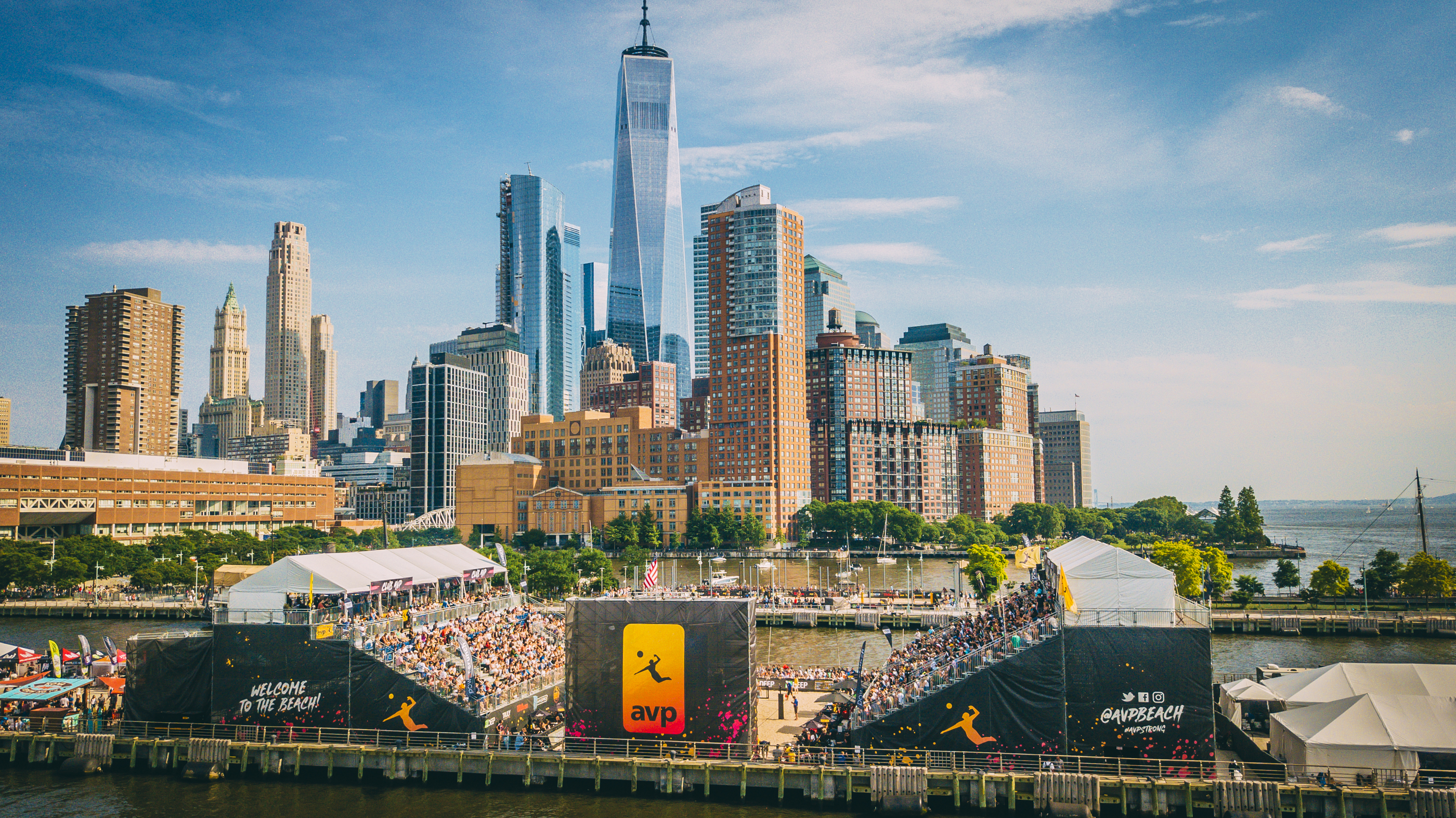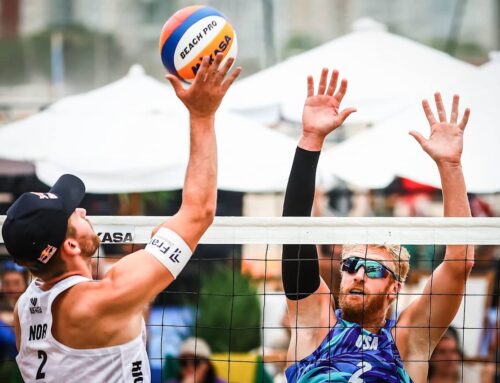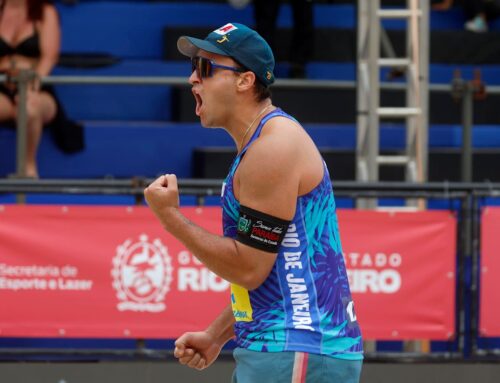It’s Saturday morning in New York City. Maybe 9 a.m. Right about the time the coffee begins to hit and conversations become a bit livelier. My mom and dad are in town for AVP New York, and though my weekend was cut frustratingly short in a single match in Thursday’s qualifier, they’ve learned to love volleyball because their middle son loves volleyball, so we’re on our way to the main draw site, a mile down the road.
At the corner, we run into a man in a Nike hat and a beard, and a muscled individual with long, floppy hair and a half-white mustache. One introduces himself as Reid, the other as Jeremy. As we cross the street, I talk with Jeremy, my parents to Reid.
Reid asks where they’re from, and they say Maryland, and he lights up, says he has family in Richmond. My dad’s brother is in Richmond! They talk about the East Coast. Then it turns to golf, which Reid is quite good at, but which my little brother was also exceptional, once playing in college and shooting 67 on the regular. Reid’s impressed, though he has to go. A match to play. Volleyball, you know.
He and Jeremy head out, and my mother looks over and claps my shoulder: “What a nice man!”
That’s Reid Priddy, I say. Maybe the greatest indoor volleyball player the United States has ever seen.
She had no idea. Reid never mentioned it.
***
I’m a reader. Most of you know that by now, though you may not know that some of my favorite passages are from the Stoics – Marcus Aurelius, Seneca, Cato, Diogenes, Epicetus. A line I came across last night from Aurelius struck me: “What is your vocation?” he wrote. “To be a good person.”
Never has this been more evident in the world of beach volleyball than this weekend in New York City. In a world where celebrities and sports figures are deified, and subsequently surrounded by security both real and imagined, hidden behind social media facades and SUVs with tinted windows, beach volleyball players are alarmingly open.
There goes Casey Patterson, a few beats after his match against Chaim Schalk and Ricardo Santos. Want a picture with him? You got it. Autograph? Sign away. There’s the McKibbin Bros, holding down the Kona beer garden. Ah, yes, there’s Schalk, the 2016 Rio Olympian, weaving through the crowd with his wife, Lane Carico, an AVP mainstay and budding international presence.
Everywhere you go, there are the players also. They sign autographs, take pictures, make real, genuine conversation, a startling contrast from the NBA or MLB or NHL or NFL, where picture and autograph and mingle time is rigidly structured and regulated and overseen by managers making sure their smiles are wide enough and only the right things are coming out of their mouths – be polite, speak in clichés, 15 minutes only.
Not beach volleyball.
Not 20 minutes after Phil Dalhausser and Nick Lucena beat Schalk and Santos on Friday evening, there was Dalhausser and his coach, Jason Lochhead, walking down the street, a few steps behind my parents and I. Phil had taken the time to ask me about the qualifier, how it went, and then shook his head when he heard the result, saying how gnarly they are, how if Nick and him had to qualify in 16-team draws…sheesh. It’s tough. And then my parents and I turned down one road, and Dalhausser and Lucena another.
“Can you imagine,” my dad said, “LeBron James just walking down the street to his hotel after a Cavs game?”
You can’t, because it won’t happen. Not now. Not ever. And that’s one of the many beauties of beach volleyball.
Every single player who met my parents this weekend was unfailingly polite. Prior to the weekend, my mom had only met Patterson, and he was therefore her favorite. But now she can’t decide, because Eric Zaun was so funny; Ed Ratledge said good words about her son, and she loves anyone who says good words about her son; Brittany Howard and Sara Hughes and Delaney Knudsen and Jessica Sykora were “just so humble and adorable;” Myles Muagututia and Kyle Friend and Chase Frishman reminded her of my friends back home, the type who don’t have to knock and have a spare bed whenever they’d like, no need to ask; Avery Drost, too, was just so humble, a common word used by my parents when describing players throughout the weekend.
Maybe this doesn’t seem unusual to you. Since you’re reading this, you’re likely a beach volleyball enthusiast, and all of this is quite normal.
But my parents are not beach volleyball enthusiasts. They are sports fans, and as sports fans, they’re not used to such availability, such openness, such – how to phrase it?
They’re not used to athletes being normal people, really. Not used to escorting Priddy and Casebeer after breakfast to their match, or Dalhausser back to his hotel. They’re used to clichés, shallow mingles, structured autograph signings.
My mom is a believer in human beings, and she invariably gives the benefit of the doubt to guys like LeBron and Kevin Durant and Joe Flacco and Tom Brady and Adam Jones. They seem like nice people, she says.
But she’ll never know.
With beach volleyball players, she does.
And though their vocation is, yes, to play beach volleyball. This weekend showed the foremost layer might be this: To be good people.


